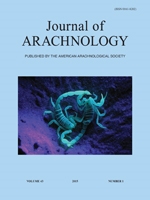Darwin's naturalization hypothesis (DNH) states that the successful establishment of alien species is favored when the phylogenetic relationship between the colonizer and the recipient community is distant. From a population perspective, the establishment involves both the progressive increase in size and spatial distribution of the invasive population. In this study, we focused our attention on the spatial component of establishment, assessing the role of phylogenetic relatedness as a determinant of its extension. Following DNH, it is expected that alien species closely related to the native spiders would show narrower distribution ranges than alien taxa less related to the native species. We found 18 alien spider species in Chile; all of these are synanthropic and most are of African origin. Our results indicate a difference in range size between related and unrelated species but it was not statistically significant. Consequently, the results do not support DNH as an explanation of the distributional component of establishment of alien spider species in Chile. We conclude that ecological constraints do not affect the process of invasion of spiders; therefore, it is only time that determines the spread of alien spiders in this country.
How to translate text using browser tools
1 April 2015
Alien spiders in Chile: evaluating Darwin's naturalization hypothesis
Andrés Taucare-Ríos,
Ramiro O. Bustamante
ACCESS THE FULL ARTICLE

The Journal of Arachnology
Vol. 43 • No. 1
April 2015
Vol. 43 • No. 1
April 2015
Aerial dispersal
biological invasion
geographic range
phylogenetic relatedness
residence time




